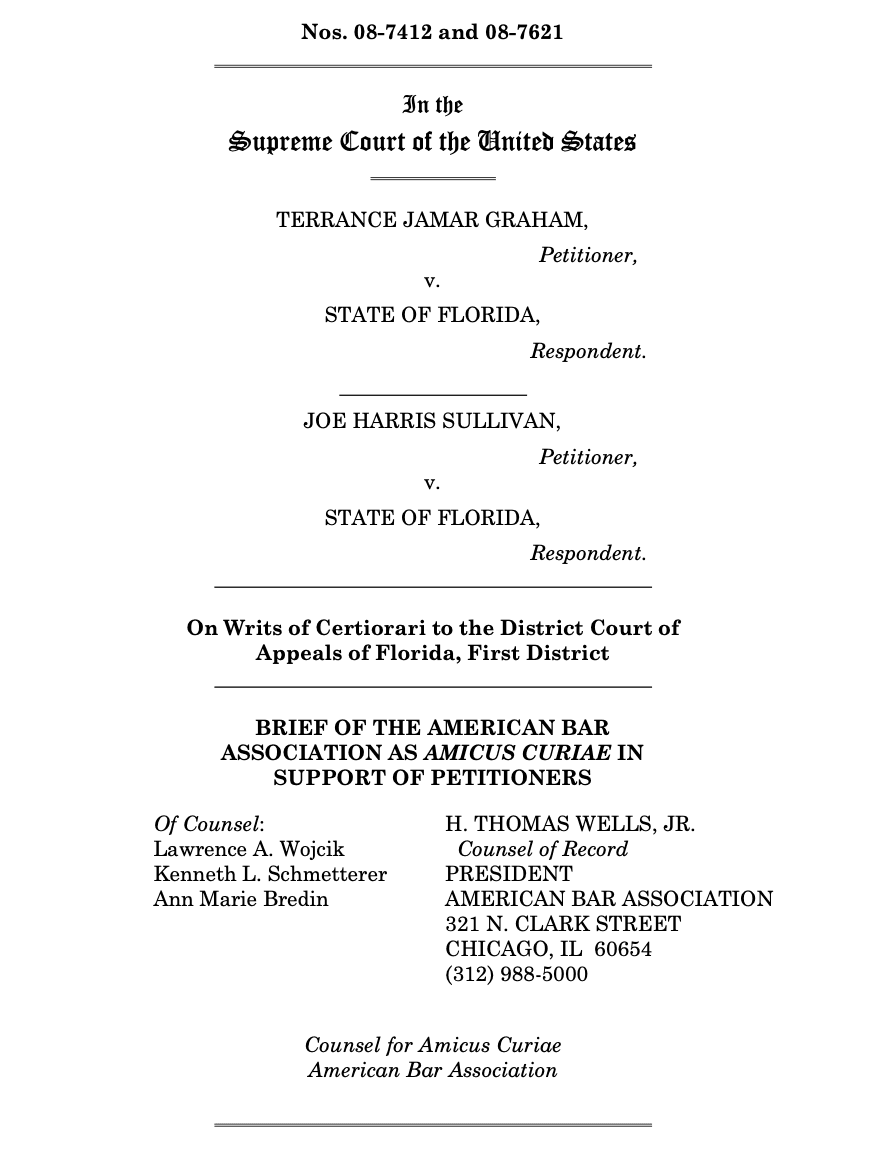
Summary of Argument
Under Miller and Montgomery, the Eighth Amendment prohibits a sentence of life without parole for juvenile offenders except for the rare juvenile whose crime reflects irreparable corruption rather than transient immaturity of youth. This case concerns the procedures States must adopt to “separate those juveniles who may be sentenced to life without parole from those who may not.” Montgomery v. Louisiana, 136 S. Ct. 718, 735 (2016). To implement the substantive guarantee of the Eighth Amendment, without intruding more than necessary upon the States’ sovereign administration of their criminal justice systems, the Court should require that sentencing courts at a minimum, must ask and answer correctly the question whether a juvenile offender’s “crime reflects irreparable corruption.” Adams v. Alabama, 136 S. Ct. 1796, 1799 (2016) (Sotomayor, J., concurring in the decision to grant, vacate, and remand).
Important rule of law considerations underpin the conclusion that lower courts must focus their inquiry on the specific distinction between transient immaturity and irreparable corruption. Mere consideration of the juvenile offender’s age “poses too great a risk of disproportionate punishment.” Miller, 567 U.S. at 479. And although States “have some flexibility” in the design of their own procedures, their “‘discretion’” is “not ‘unfettered.’” Moore v. Texas, 137 S. Ct. 1039, 1052 (2017) (quoting Hall v. Florida, 572 U.S. 701, 719 (2014)). A sentencing court’s failure to decide whether the juvenile defendant before it is among those rare children whose crimes reflect irreparable corruption carries the too great risk that this Court’s substantive constitutional rule in Miller will go unheeded.
Thus, to ensure compliance with the Miller rule in accordance with the rule of law, the Court should impose a guardrail on the States’ discretion to design their own procedures by requiring sentencers to ask the “essential question whether [the defendant is] among the very ‘rarest of juvenile offenders, those whose crimes reflect permanent incorrigibility.’” Adams, 136 S. Ct. at 1800–1801 (Sotomayor, J., concurring in the decision to grant, vacate, and remand) (quoting Montgomery, 577 U.S. at 734). Sentencing courts can answer that essential question by make a finding on the record of permanent incorrigibility—indeed, that is the best way to ensure adherence to the holding of Miller and Montgomery. Alternatively, States may assign the prosecution the burden of rebutting a presumption against permanent incorrigibility. Regardless, States still will retain considerable leeway in the “task of developing appropriate ways to enforce the constitutional restriction upon [their] execution of sentences.” Ford v. Wainwright, 477 U.S. 399, 416–417 (1986).
The ABA urges the Court to reverse the judgment below because there is no indication that the sentencing judge even asked the question Miller required him to answer correctly: whether Mr. Jones’ crime reflected irreparable corruption.